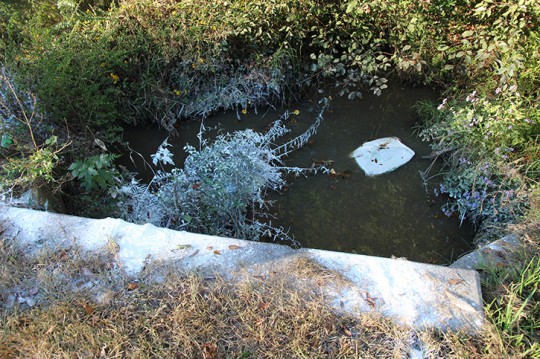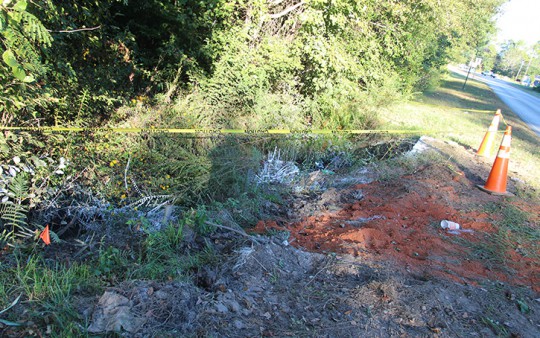Judge Tosses Pollution Notification Rule
December 31, 2016
In a victory for business groups, an administrative law judge Friday ruled that the Florida Department of Environmental Protection overstepped its authority in proposing new requirements for notifying the public when pollution occurs.
The department proposed the notification requirements after high-profile pollution incidents involving a sinkhole at a phosphate plant in Polk County and sewage discharges into Tampa Bay.
But Associated Industries of Florida, the Florida Farm Bureau Federation, the Florida Retail Federation, the Florida Trucking Association and the National Federation of Independent Business challenged the proposed rule in the state Division of Administrative Hearings.
Judge Bram D.E. Canter issued a 21-page order Friday siding with the business groups’ arguments that the department does not have authority under state law to impose the notification requirements on people or businesses responsible for pollution releases. In part, the arguments dealt with proposed requirements for notifying the public through the news media when pollution occurs.
Canter wrote that state law only requires that the Department of Environmental Protection be notified about incidents such as spills or contamination.
“There is no statute that specifically authorizes DEP to adopt a rule which requires persons to notify entities other than DEP when there is a release of a contaminant,” Canter wrote.
The proposed rule came after incidents that included a sinkhole opening at a Mosaic fertilizer plan in Polk County and sending contaminated water into the Floridan Aquifer. Also, it followed St. Petersburg spilling large amounts of sewage into Tampa Bay after Hurricane Hermine.
The proposal called for such pollution incidents to be reported to the Department of Environmental Protection, the news media and local governments within 24 hours. Also, the proposed rule included reporting requirements such as notifying adjacent property owners when pollution travels off-site.
In a document filed Dec. 14, attorneys for the business groups argued that the department’s “haste to respond to the Mosaic sinkhole incident and the St. Petersburg release led to this broad rule and led FDEP to disregard their lack of statutory authority.”
“Under its (the proposal’s) terms, for example, truckers with a fuel spill over 25 gallons can be required to contact the media and local government about the spill,” the document said. “Small businesses, such as dry cleaners and gas stations, that use solvents and petroleum can likewise be swept up within the rule for small releases that pose no realistic danger to human health, whether or not it was prompted by events beyond their control. Under this broad variety of circumstances and businesses, all the entities covered by this rule will be required to contact local media, who have no training and little experience in assessing environmental releases, and who may cause an overreaction, unnecessary panic, and damage a (business’) reputation.”
But department attorneys, in a document filed the same day, contended the agency had the legal authority to require the stepped-up notification.
“The department reasonably interpreted the statute by defining a set of circumstances that presented a threat to human health, and by placing special emphasis on that set of circumstances,” the department attorneys wrote.
While Canter sided with the business groups, the issue of public notification of pollution incidents could re-emerge during the 2017 legislative session, which starts in March. Sen. Bill Galvano, R-Bradenton, and Rep. Kathleen Peters, R-Treasure Island, indicated in September that they would propose legislation to address the issue.
McKinley Lewis, a spokesman for Gov. Rick Scott, said in an emailed statement late Friday afternoon that the Scott administration remains committed to increased public notification.
“Protecting Florida’s pristine environment is DEP’s top priority and they will continue the public pollution notification process to ensure all Floridians and visitors are notified of pollution incidents,” Lewis said. “Governor Scott has been clear that the current law is outdated and needs to be changed. That is why earlier this year he directed DEP to implement an emergency rule and announced that he will fight for legislation that ensures Florida families and visitors are notified within 24-hours of a pollution incident. We will review the judge’s order to determine next steps.”
by Jim Saunders, The News Service of Florida
Pictured: The Town of Century had 500 gallon sewage spill into this ditch near the Century Woods Apartment on West highway 4 on October 20. NorthEscambia.com photos, click to enlarge.
Comments
3 Responses to “Judge Tosses Pollution Notification Rule”





It seems like this regulation could have been worded better. Just put in an addendum as to the amount and type of spill that needs to be reported.
We’ll see a lot more of this when the new people in washington do away with the EPA. Get ready to start drinking poison….The new version of kool-aid.
REGARDING:
“Governor Scott has been clear that the current law is outdated and needs to be changed. That is why earlier this year he directed DEP to implement an emergency rule and announced that he will fight for legislation that ensures Florida families and visitors are notified within 24-hours of a pollution incident. We will review the judge’s order to determine next steps.”
I don’t see anything which stops DEP from making the notification.
Single point of contact concept.
It should be even faster and more reliable since they can keep all the numbers ready and updated rather than expect everybody else to do it. Set up an echo system in which all reports to them are automatically sent to all news outlets.
(They are looking for reasons for people to use them.)
Regardless, if they aren’t authorized to require it, they either shouldn’t require it or else seek authorization.
David for knowing your limits